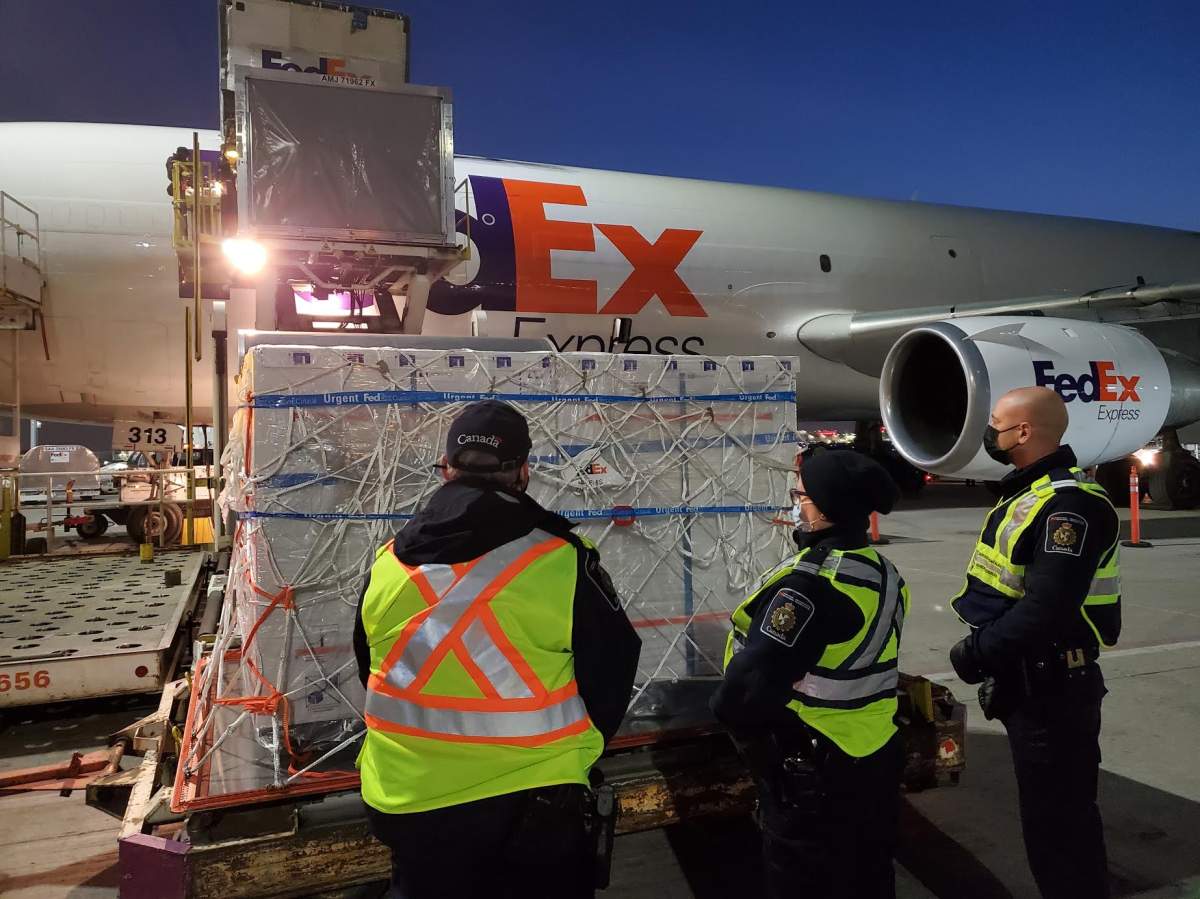Nova Scotia has announced it will receive its first shipment of the AstraZeneca COVID-19 vaccine next week.

The shipment will carry 13,000 doses of the vaccine that Health Canada approved on Feb. 26.
“This vaccine provides another tool in our fight against COVID-19 and builds on the roll-out that is already underway in our province as we work to vaccinate all Nova Scotians,” Premier Iain Rankin said in a news release.
“We are pleased that conversations with Doctors Nova Scotia and the Pharmacy Association of Nova Scotia have resulted in a commitment from them to develop a plan by next week.”
The AstraZeneca vaccine is the third approved for use in Canada. The country has received 500,000 doses from the Serum Institute of India.
The province said Nova Scotia’s decision to accept the vaccine was made after health officials ensured that receiving the doses would not impact the current rollout in which those over the age of 80 are being immunized.
“We have to move fast as we are mindful of the fact that we have a short window to use it given that they will expire in a month,” Rankin said in the release.

Get weekly health news
The AstraZeneca vaccine doses being received next week must be used by April 2. It will be administered as first doses for Nova Scotians between the ages of 50 and 64, starting March 15.
“It is on a first come, first served basis,” the province says.
This vaccine, like the Pfizer-BioNTech and Moderna vaccines, is given in two doses.
However, the AstraZeneca vaccine is the first viral vector-based COVID-19 vaccine approved in Canada.
Based on clinical trials it is 62 per cent effective against COVID-19, compared to Moderna and Pfizer vaccines, which are both mRNA vaccines and are more than 90 per cent effective.

The province says mRNA vaccines do not contain the COVID-19 virus. “Instead, they teach our cells how to create the protein needed to trigger an immune response to protect against infection.
“The AstraZeneca viral-vector-based vaccine also don’t use the virus that causes COVID-19, but a different, harmless virus that triggers an immune response.”
Horacio Bach, an infectious diseases professor at the University of British Columbia, tells Global News it’s not all about the numbers.
“(For) Pfizer and Moderna, the data was based on only the original strain of the virus,” Bach says.
“(For) Astrazeneca, part of the study was done in South Africa, where the South African variant already started to be there, so it’s not so fair to be comparing the data.“
Bach says AstraZeneca’s data shows a significant reduction in the number of hospitalizations.
“Even at 62 percent, it doesn’t mean you’re not protected; it means you will cope in a better way with the disease, avoiding probably going to the hospital.”
“You are still protected by the antibodies that you produce as a result of the vaccine.”
According to the National Advisory Committee on Immunization (NACI), it is recommended that authorities offer this vaccine to people between the ages of 18 and 64.
NACI “recommends that higher efficacy vaccines should be offered to those who are most at risk of severe disease and exposure in order to reduce hospitalizations, deaths and to limit the worsening of health inequities,” the province said in the release.
Bach says that studies done with the AstraZeneca vaccine did not include populations of the age of 65.
“It doesn’t mean it’s bad, it means we don’t have sufficient data to show that you know what over 65 is fine.”
Another difference is storage and handling requirements of the new vaccine.
“Moderna and Pfizer-BioNtech vaccines require cold or ultra-low cold storage, while the AstraZeneca vaccine can be transported and stored between 2 and 8 degrees Celsius, similar to standard flu vaccine.”









Comments